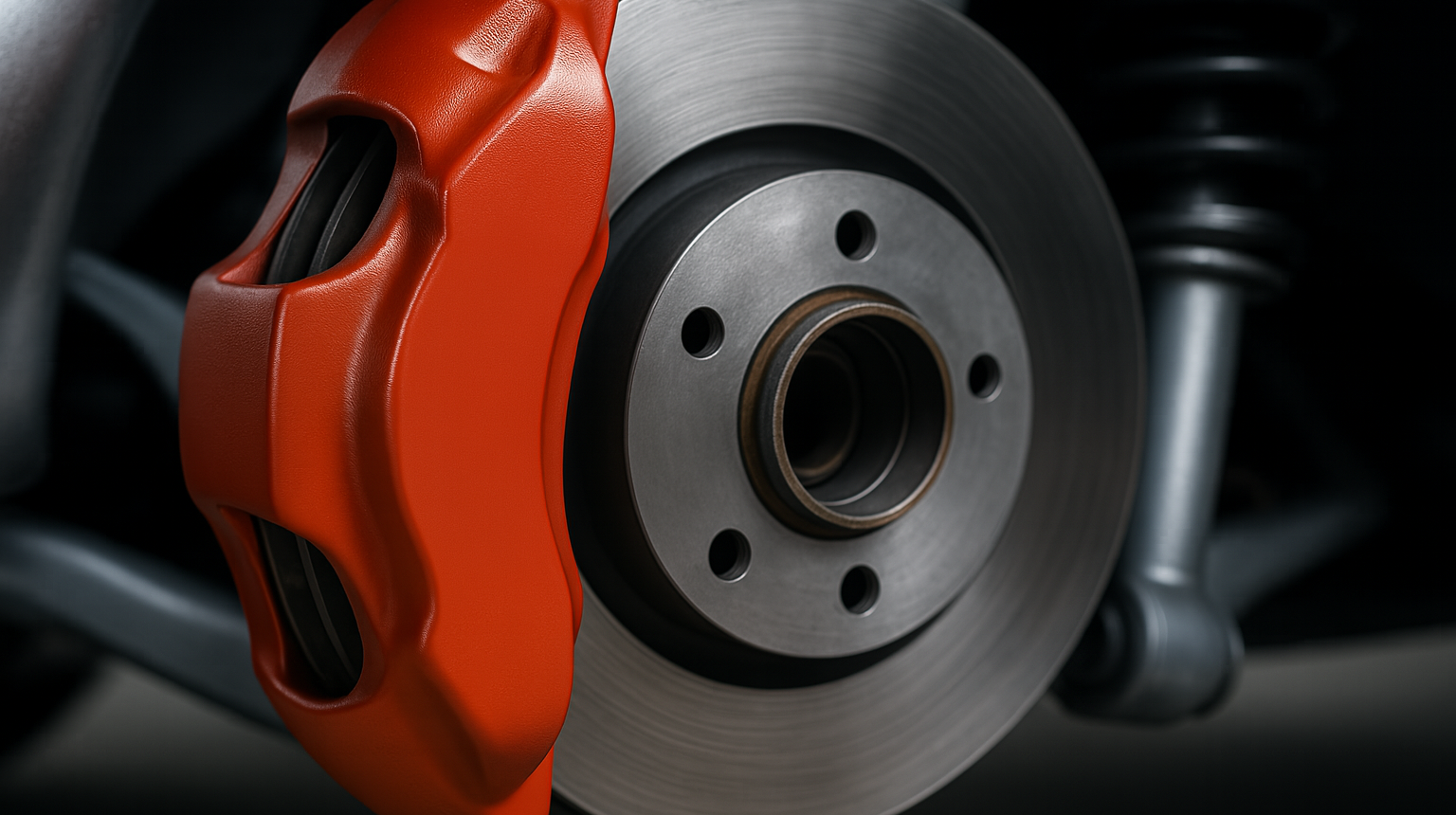
Use Cases
Real-time brake torque monitoring
via caliper strain

Summary
In advanced braking systems, precise knowledge of the brake torque is essential for dynamic control, safety, and predictive maintenance. Traditional methods rely on indirect estimations, such as hydraulic pressure or engine torque balance. These lack real-time accuracy and may not reflect actual mechanical stress at the braking interface.
The challenge
The Challenge
Designing a brake torque measurement system that is:
- Accurate in high-temperature environments (up to 150 °C)
- Compact and integrable on brake calipers
- Resistant to vibrations and electrical noise
- Capable of providing real-time, direct measurements
Application Examples
Our capacitive solution is suitable for a range of test and development applications:
- Dynamic brake testing for performance vehicles
- Embedded monitoring for smart braking systems
- Advanced braking R&D under extreme conditions
- Monitoring wear and mechanical stress in calipers
The solution
After comparing multiple technologies—including strain gauges, fiber Bragg grating (FBG) sensors, and capacitive systems—FOGALE selected capacitive sensors as the most suitable solution. Capacitive sensors offer excellent thermal stability, are mechanically robust, and can be finely tuned to detect small deformations with high repeatability.
The capacitive sensor is mounted on a custom-machined section of the caliper where stress concentration is optimized. During braking, the deformation of this area is measured and converted into a torque value using a calibration model. This solution includes:
- A high-temperature capacitive sensor
- Compact embedded electronics for signal conditioning
- A calibration model developed from test-bench correlation
- Optional integration into vehicle ECU systems for control or diagnostics
Key Advantages
| Feature | Benefit |
|---|---|
| Non-contact deformation sensing | No friction, wear or mechanical disturbance |
| Stable operation up to 150 °C | Suitable for demanding automotive test environments |
| Direct torque correlation | Real-time, precise feedback without complex computation |
| High repeatability and linearity | Reliable results across multiple test cycles |
| Integration-ready design | Easily adapted to various caliper geometries |
The results
Developed jointly with industry experts, this solution enables real-time brake torque monitoring through deformation sensing with high precision, reliability, and robustness. It supports smarter braking control and predictive maintenance strategies.